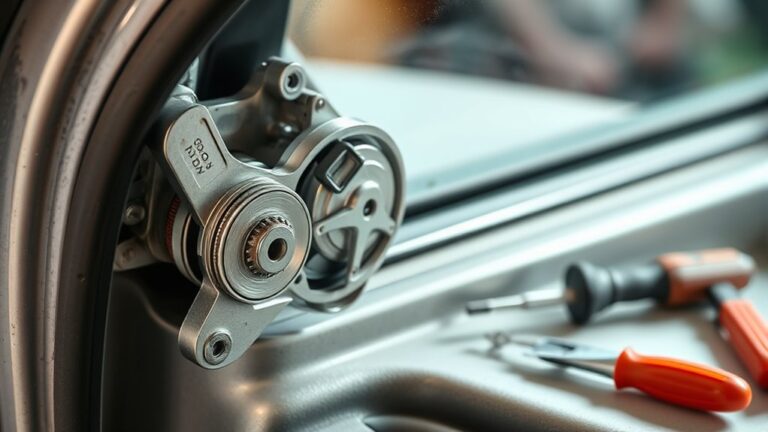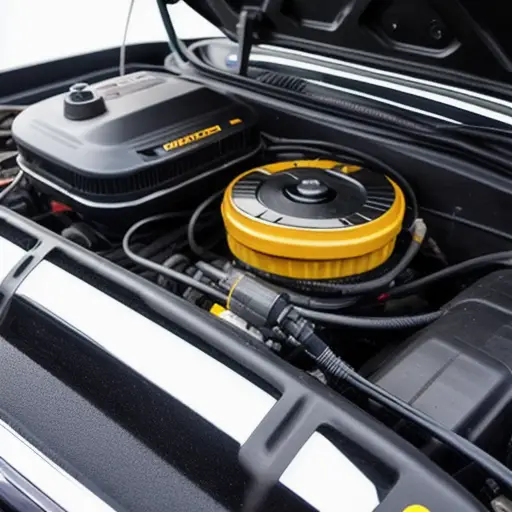Can Seafoam Hurt Your Engine? (Short Answer)
Seafoam is a popular fuel additive used by many car enthusiasts to clean and lubricate their engines. While Seafoam can be effective at removing carbon deposits and improving engine performance, there are some concerns about its potential to harm the engine. In this article, we’ll explore the potential risks and benefits of using Seafoam, and whether it’s safe to use in your car.
Short Ans:
When used according to the manufacturer’s instructions, Seafoam is generally safe and effective at cleaning and lubricating your engine. However, improper use or overuse of Seafoam can potentially harm your engine, particularly if it is added to the oil or fuel system in excessive amounts.
Here is a link to Seafoam on Amazon. If you want, you can buy it here at a low price.
What Is Seafoam?
Seafoam is a petroleum-based fuel additive that is designed to clean and lubricate internal engine components, including the fuel injectors, carburetors, intake valves, and combustion chambers. It is a popular choice among car enthusiasts as it can help to restore engine power and fuel efficiency by removing carbon buildup and other deposits that can accumulate over time.
Seafoam is typically added directly to the fuel tank or the intake manifold, depending on the application, and can also be used as an engine oil additive to clean and protect the engine’s internal components.
How To Use Seafoam Properly?
- For the fuel system: Add 1 ounce of Seafoam per gallon of fuel to the fuel tank. This will help to clean the fuel injectors, carburetors, and intake valves as the fuel flows through the engine.
- For the intake manifold: Remove the vacuum hose from the brake booster or PCV valve, and slowly pour about 1/3 to 1/2 of a can of Seafoam into the hose. Allow the engine to idle for 10-15 minutes to let the Seafoam clean the intake manifold and valves.
- For the oil system: Add 1.5 ounces of Seafoam per quart of oil in the engine. Drive the car for at least 100 miles, then change the oil and filter to remove any contaminants that have been dissolved by the Seafoam.
It’s important to follow the manufacturer’s instructions carefully and not to use too much Seafoam, as excessive use can potentially harm your engine. Also, always make sure to use Seafoam in a well-ventilated area and avoid inhaling the fumes.
Does Seafoam Chemical Composition Make It Bad For A Car’s Engine?
No, the chemical composition of Seafoam does not make it bad for a car’s engine when used properly. Seafoam is made from a blend of petroleum-based chemicals and detergents that are designed to safely and effectively clean and lubricate internal engine components. However, if used improperly or in excessive amounts, Seafoam can potentially harm your engine. It’s important to follow the manufacturer’s instructions carefully and not to overuse the product.
Why Should I Use Seafoam On My Engine?
Seafoam is designed to help clean and lubricate the internal components of your engine, which can help improve engine performance, fuel efficiency, and overall engine health. Here are some of the main benefits of using Seafoam on your engine:
- Cleans fuel injectors and carburetors: Seafoam can help remove deposits and buildup from fuel injectors and carburetors, which can improve fuel flow and combustion.
- Cleans intake valves and ports: Seafoam can help clean carbon buildup on the intake valves and ports, which can help improve engine airflow and performance.
- Removes moisture from fuel: Seafoam can help remove moisture from the fuel system, which can prevent corrosion and fuel system damage.
- Lubricates engine components: Seafoam can help lubricate internal engine components, such as piston rings and bearings, which can help reduce wear and extend engine life.
Are There Any Dangers Of Using Seafoam On My Car Engine?
While Seafoam is generally safe and effective when used properly, there are some potential dangers to be aware of:
- Overuse
If you use too much Seafoam, it can cause excessive smoke and potentially harm your engine. It’s important to follow the manufacturer’s instructions carefully and not to use more than the recommended amount.
- Improper Use
Seafoam should only be used in a well-ventilated area, and you should avoid inhaling the fumes. Additionally, you should only use Seafoam in the recommended parts of your engine and not add it to the fuel tank or oil system.
- Misapplication
Seafoam is not a cure-all for engine problems, and using it on a car with a serious mechanical issue may not address the underlying problem.
Can Seafoam Damage Gas System?
Seafoam is designed to clean and lubricate various parts of your car’s fuel system, including the fuel injectors, carburetor, and intake valves. When used properly and in the correct dosage, Seafoam is generally considered safe and should not damage your car’s gas system.
If you use too much Seafoam or add it to the wrong part of your engine, it could potentially cause damage. Additionally, if your car’s fuel system is already damaged or in poor condition, using Seafoam may not be effective and could potentially make the problem worse.
It’s important to use Seafoam responsibly and follow the manufacturer’s instructions carefully to avoid any potential damage to your car’s gas system.
When Should I Use Seafoam On Engine?
Seafoam can be used as a fuel system cleaner, oil system cleaner, or general engine cleaner. Here are some situations where you might consider using Seafoam on your engine:
- Fuel system maintenance: If you notice that your car’s fuel efficiency has decreased or you’re experiencing rough idling, Seafoam can help to clean your fuel system and restore performance.
- Oil system maintenance: Adding Seafoam to your engine oil can help to remove built-up sludge and debris, improving lubrication and extending the life of your engine.
- General engine maintenance: If your engine is running rough or you notice any other performance issues, using Seafoam as a general engine cleaner can help to remove carbon deposits and other debris, restoring performance and efficiency.
Will Seafoam Ruin Spark Plugs?
No, Seafoam will not ruin spark plugs. Seafoam is designed to clean and maintain your car’s engine, and it can actually help to improve the performance of your spark plugs by removing any built-up carbon or debris that may be interfering with their function.
However, if your spark plugs are already worn out or damaged, using Seafoam may not be enough to fix the issue, and you may need to replace them. It’s important to follow the manufacturer’s instructions carefully when using Seafoam, and not to overuse it, as excessive use can cause damage to your engine or other parts of your car.
What Happens When You Leave Seafoam In Your Car Engine?
If you leave Seafoam in your car engine for an extended period of time, it can cause some issues. Seafoam is designed to clean and dissolve deposits in your engine, but if left sitting for too long, it can break down and turn into a thick sludge that can clog up your engine’s oil passages or other components. This can lead to reduced engine performance, overheating, or even engine damage.
If you’re planning on using Seafoam in your car’s engine, it’s important to follow the manufacturer’s instructions carefully and not to leave it in your engine for longer than recommended. Typically, you’ll want to add the Seafoam to your fuel tank or oil system and then run your car for a short period of time before draining and replacing the oil or refilling your gas tank.
Is Seafoam Toxic To Your Engine?
No, Seafoam is not toxic to your engine when used properly. In fact, Seafoam is specifically designed to be used as an engine cleaner and fuel system treatment, and it can help remove carbon buildup and deposits that can cause engine problems.
Is Seafoam A Popular Engine Treatment Product?
Yes, Seafoam is a very popular engine treatment product among car enthusiasts and mechanics. It has been on the market for over 70 years and is known for its ability to clean and maintain engine performance. Seafoam is particularly popular for its ability to remove carbon buildup and deposits from fuel systems, which can improve fuel economy, reduce emissions, and improve overall engine performance. Additionally, many people use Seafoam as a preventative measure to keep their engines running smoothly, particularly if they drive older or high-mileage vehicles.





